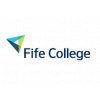Snabbfakta
-
- Rennes
Ansök senast: 2024-06-14
PhD Position F/ M Multimodal Segmentation of Chronic Stroke Lesions
Contexte et atouts du poste
The selected PhD candidate will have the opportunity to join the research lab Empenn at Inria-Irisa, located in Rennes, France. Empenn is affiliated with Inria, Inserm, CNRS, and the University of Rennes. Our team operates the Neurinfo imaging facility in partnership with the University Hospital of Rennes, Inria, CNRS, and the Cancer Research Center. Additionally, Empenn benefits from access to various computing facilities such as Grid5000 and collaborates with other Inria/Irisa research teams, particularly in machine learning, such as Lacodam.
Comprising over 30 dedicated individuals, including researchers, faculty members, PhD students, engineers, and interns, our research lab focuses on neuroimaging. Our primary goal is to identify and develop imaging biomarkers for various brain diseases, with a strong commitment to translating our techniques and findings into practical applications within clinical neurosciences.
The selected candidate will work closely with our interdisciplinary team, collaborating with engineers, researchers, and clinicians. Collaboration extends to the Lacodam team, specializing in computer science, facilitated by co-direction from Elisa Fromont.
Mission confiée
Research motivation. Stroke, a leading global cause of morbidity and mortality, results from the sudden disruption of blood supply to the brain, causing severe neurological impairments. In both acute and chronic stroke evaluation phases, MRI plays a crucial role. Integrating chronic stroke lesion segmentation into clinical practice has the potential to significantly enhance rehabilitation management, offering a deeper understanding of brain function impact and aiding clinicians in formulating effective treatment plans. Our goal is to leverage deep learning and available data to develop an accurate and robust automated chronic stroke lesion identification and segmentation system, assisting clinicians in planning more effective rehabilitation strategies.
Objectives. The selected PhD candidate will delve into research at the intersection of multimodal imaging and deep learning, specifically focusing on the segmentation of chronic stroke lesions. The methodological investigation will concern the following challenges:
i. Multimodal Integration. The primary objective is to improve segmentation by combining information from different MRI modalities.
ii. Labeled, Partially Labeled, and Unlabeled Data. The focus is to develop methodologies capable of handling varying levels of annotation.
iii. Addressing Missing Modality. The objective is to formulate an approach capable of handling situations where specific imaging information is absent.
Responsibilities. The appointed person will be responsible for the development and implementation of innovative methodologies for automatic segmentation of chronic stroke lesions. Additionally, she/he will be expected to take initiatives to refine existing approaches and explore novel techniques to address the challenges posed by multimodal imaging and incomplete datasets.
Principales activités
The PhD candidate will:
- Stay updated on the latest advancements in deep learning for medical image segmentation, particularly in stroke lesion segmentation, through literature reviews.
- Develop deep learning models for automatically segmenting chronic stroke lesions from multimodal MRI data, prioritizing accuracy and reliability.
- Explore attention mechanisms and feature fusion techniques to integrate different MRI modalities, for improved lesion segmentation.
- Investigate semi-supervised learning methods to effectively employ labeled, partially labeled, and unlabeled datasets during model training.
- Address the challenge of missing MRI modalities during testing, ensuring the segmentation model's adaptability to various imaging protocols.
Additionally, she/he will contribute to scientific publications summarizing their research findings and methodologies.
Compétences
Technical skills and level required:
Languages: Proficiency in Python programming is essential.
Relational skills: Strong communication and collaboration skills to work effectively with interdisciplinary teams.
Other valued appreciated: Hands-on experience in image processing, data analysis, and deep learning. Familiarity with medical imaging data management is highly desirable. Adaptability, a commitment to continuous learning, and a genuine interest in the medical domain are highly valued.
Avantages
Rémunération
Monthly gross salary amounting to 2100 euros for the first and second years and 2190 euros for the third year












